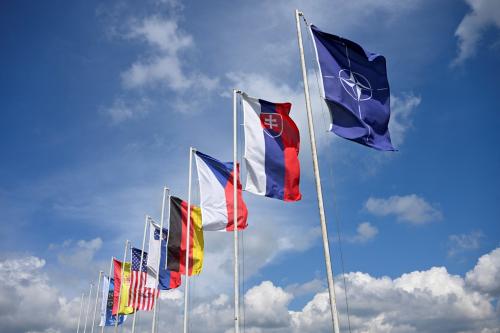In the two decades that I’ve worked at Brookings, I have had the great honor and good fortune to meet a number of amazing members of “the greatest generation.” Some, like Robert Solomon who just passed away at the age of 92, were indeed part of the group that Tom Brokaw famously singled out when ascribing to them that nickname—combat veterans of World War II. Bob flew for the Army Air Force when a young man in his early 20s, navigating bombing missions over Japan. He then moved on to economics, beginning with a PhD at Harvard followed by a distinguished career at the Federal Reserve during which he helped invent some key financial instruments that were of considerable importance to the postwar growth of the world economy (not the credit-default swaps or other such devices that have gotten us into such trouble in recent years, however!). And in recent decades, he has been a familiar face around Brookings, participating in lunches and events and inspiring us all with his cheer, courtesy, collegiality, and his never-ending curiosity.
Bob was one of about a half dozen giants of his generation who loomed around Brookings for many of the years I’ve been lucky enough to be there myself. Most have, inexorably, now passed from the scene. As we lose this amazing group, in this life and in this town at least, it’s worth an extra moment just to reflect on what they have brought to us at Brookings—but more importantly, to the nation and the world.
Daniel Schorr, the fabled NPR voice and distinguished journalist, was a constant presence at EJ Dionne’s Friday lunches—indeed, he was there well before EJ, and was crisp and witty and pithy up until the end.
Phil Kaiser, who helped create the Marshall Plan after World War II, was a dependable participant in those same discussions—with his fiery yet friendly way, always keeping things hopping.
Isaiah Frank, a mild-mannered and lovely gentlemen, sticks in my mind best for his smile and his kindness, though he was no shrinking violet intellectually either.
Hal Sonnenfeldt, one of Henry Kissinger’s key advisers through the geostrategically fateful 1970s, was with us until just a short time ago. As with all of the others, for him, the idea of retiring from public policy interests and activities was unthinkable throughout his life, even in the golden years.
Lincoln Gordon, part of the same crop of Harvard professors that gave John Kennedy some of his best ambassadors and advisers like John Peter Galbraith, went from running the US mission in Brazil in the 1960s to running Johns Hopkins University in the 1970s to spending the last couple decades of his life with us—during which time he was at virtually every small-group discussion within the foreign policy program, as well as the Friday lunches too.
To me, in fact, that Friday lunch lineup was a bit like the Yankees of the 1920s or 1950s, chock full of famous stars with so much talent that one can barely understand how any group could be lucky enough to have them all assembled in the same place.
In addition to that Dream Team, in recent years we have also lost Henry Owen, a WWII Navy vet, State Department hand and Director of Foreign Policy; Henry “Field” Haviland, also a WWII sailor and former FP Director; and Ed Fried, another Senior Fellow in foreign policy who worked closely with our Economist friends, including Alice Rivlin and Charlie Schultz.
We are sad to see them all go. We were honored and inspired by their presence. We were lucky to know them.


Commentary
“The Greatest Generation” at Brookings
September 23, 2013